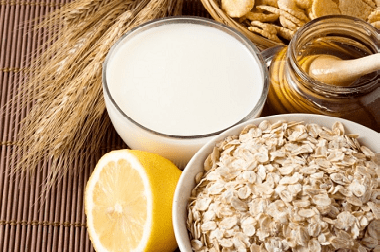Healthy food >>>> Healthy food
Healthy food.

Nutrition is the most important process in the life of any living creature. From those components that are included in nutrition, it depends on how all the life support systems of the body will function, to what extent it will be possible to maintain health.
It has been noticed that the human body is able to consume quite a variety of food products as food, both obtained naturally from living nature, and well flavored with the achievements of the chemical industry and genetic engineering. But for the smooth functioning of the body, it is not the very fact of food consumption that is important, but what exactly goes into use. What are healthy foods?
For the smooth functioning of the gastrointestinal tract (namely, for intestinal motility), fiber is needed. Fiber can be consumed in several ways, including in the diet:
- cereals in the form of coarse bread, biscuits, cereal loaves,
- cereals from the types of those cereals that are less refined (buckwheat, millet, pearl barley, oatmeal, rice, etc.),
- fruits and vegetables (raw or dried),
- green vegetables (celery, turnip, cabbage, lettuce).
Water is necessary for the body, as it is the basis of its life. But not all fluids are good for the body. Carbonated drinks, sugary drinks, alcoholic beverages are not needed for health - the body has to spend additional resources on them in order to separate water as a useful component and all other impurities in the form of an excess of sugars, salts, alcohols, dyes and other additives created for a variety of taste sensations ... Mineral water is also not always appropriate for consumption, since mineral substances dissolved in it can harm the state of health in many diseases (especially kidney diseases and metabolic disorders).
Lactic acid food products (kefir, fermented baked milk and others) are useful in that they create a breeding ground for the reproduction of beneficial microflora in the intestines, which prevents decay processes, and also helps to increase immunity.
Protein food in the form of plant and / or animal proteins (meat, fish, legumes, seafood) must be present in the diet, since proteins are the main structural elements of all living things.
Full-fledged metabolic processes are unthinkable without fat-containing products (vegetable oils, animal fats). Fresh olives, avocados, nuts, and seeds will also be useful fat-containing foods.
Vitamins and microelements are the basis of all biochemical reactions in the body, but artificially ripening fruits and vegetables do not contain them, for this reason, you should always replenish the diet with products grown independently or purchased in small households. There are no vitamins and trace elements in canned plant products, so you should give preference to fresh fruits and vegetables, rather than heat-treated ones. The exception is cases of gastrointestinal diseases, when coarse fiber and fresh fruits - vegetables will injure the walls of the gastrointestinal tract, for this reason they are replaced with boiled, sautéed, blanched or steamed.
The healthiest carbohydrates in food are sugary fruits, berries, and vegetables. They not only support carbohydrate metabolism, but also add fiber to the diet, which is never too much.

Read

Read



























